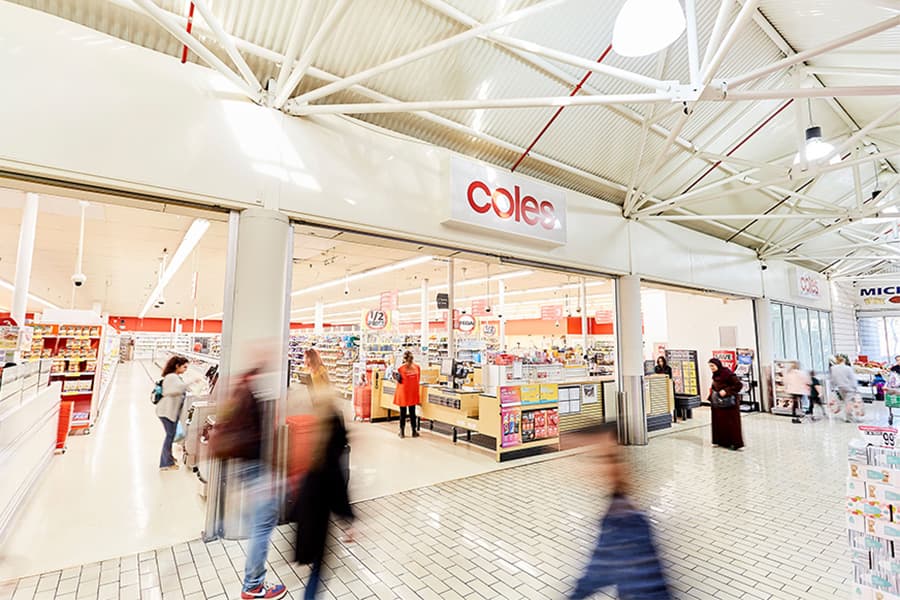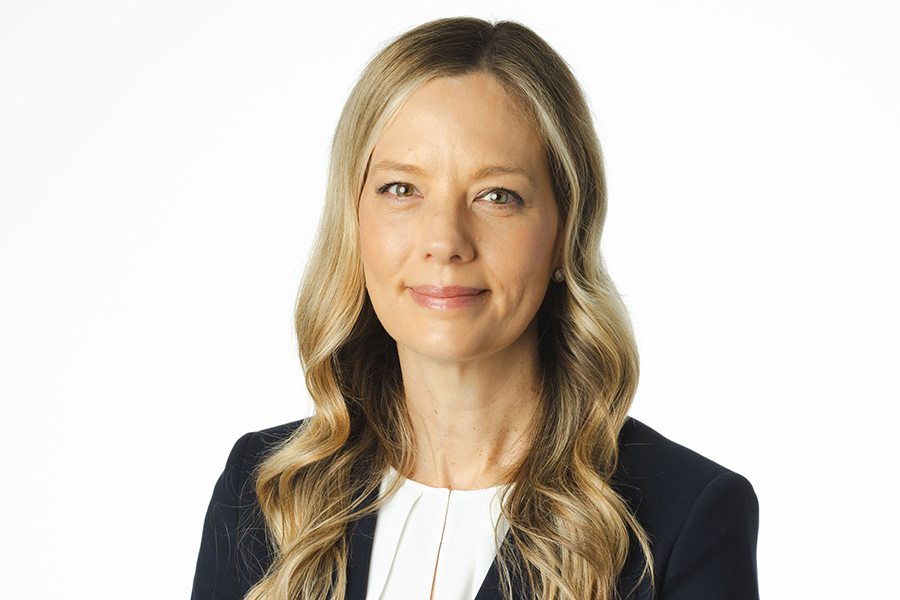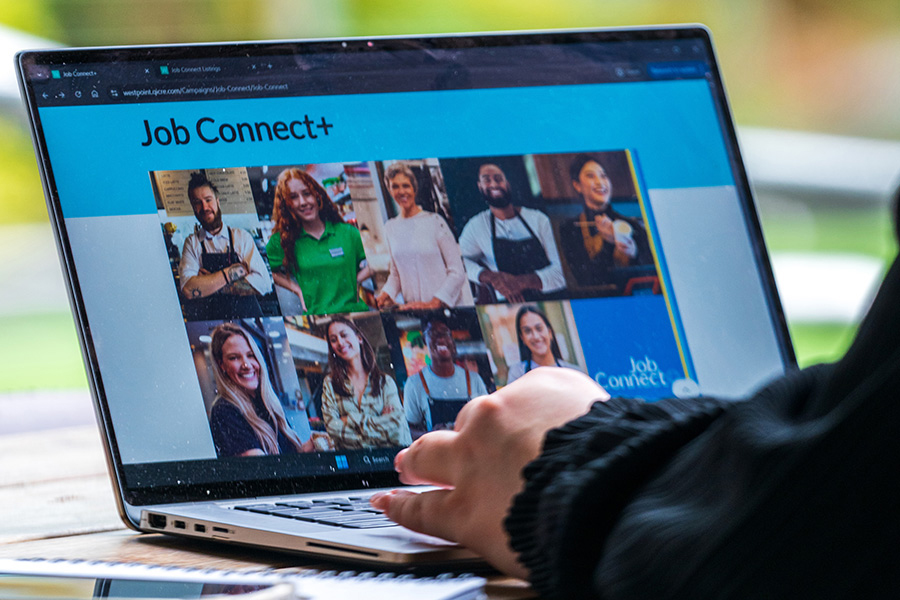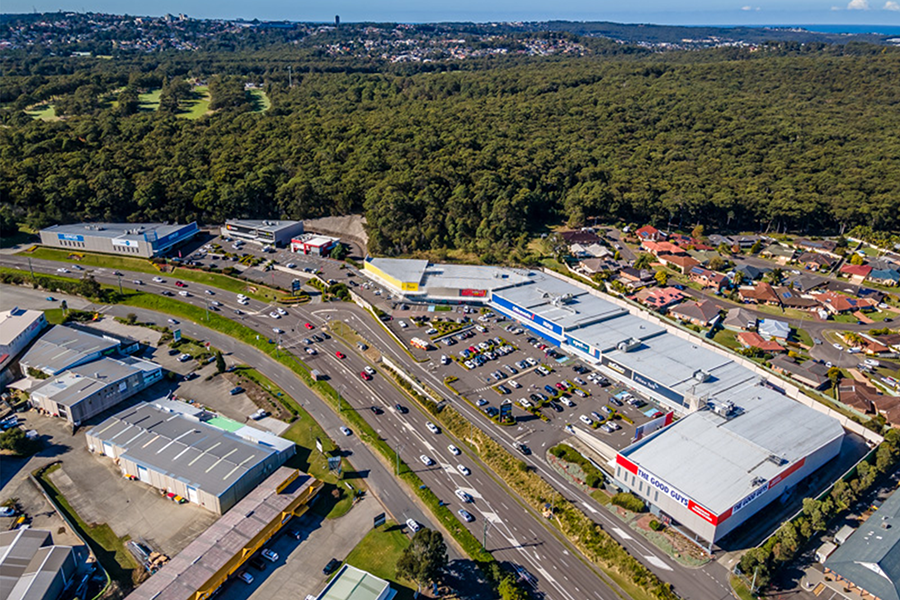Australian retail turnover rose 3.2% in July 2020, seasonally adjusted, according to the latest Australian Bureau of Statistics (ABS) Retail Trade figures. This updates the preliminary result of a 3.3% published on 21 August and follows a rise of 2.7% in June 2020.
Household goods (4.0%) led the monthly rises, as consumers continued to purchase large items for homes, but there were also large rises in other retailing, (4.4%) and food (1.2 %).
ABS’s Director of Quarterly Economy Wide Surveys Ben James said: “Retail sales in July 2020 were 12.0 % above July 2019, with sales in household goods particularly strong, 29.4% above the same month last year.”
“Turnover in clothing, footwear and personal accessory retailing (7.1%) and cafés, restaurants, and takeaway food services (4.9%) rose across the country, with the exception of Victoria, where the reintroduction of Stage 3 stay-at-home restrictions in July partially offset these rises. As was the case in April, restrictions led to significant falls in these industries in Victoria,” said James.
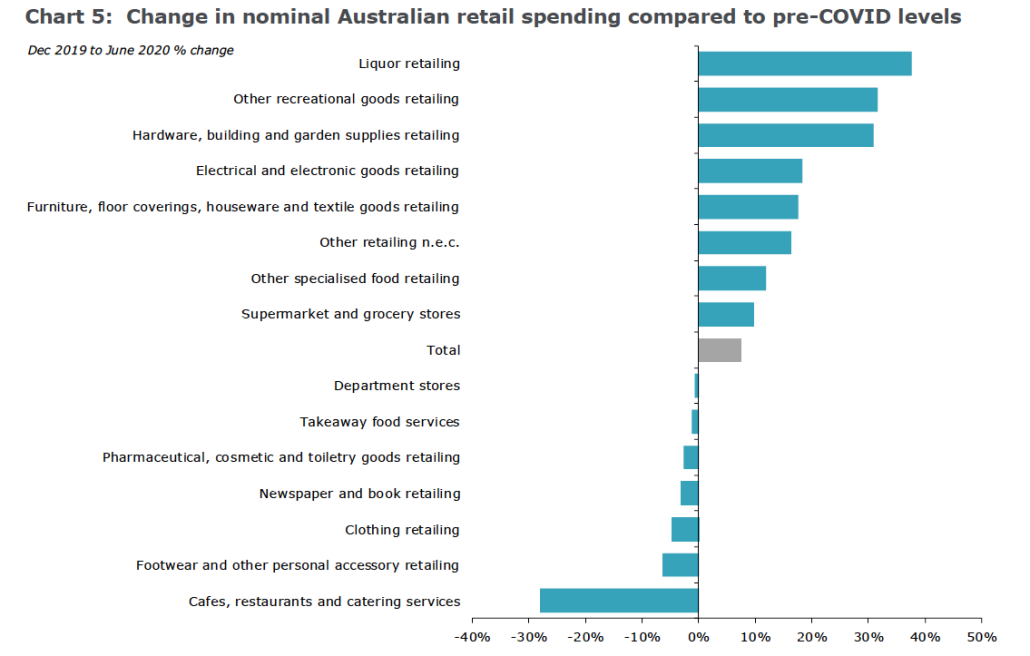
As the Victorian government announces the move to reopen it is likely that retail and shopping centre will not open significantly until the 26 October when if the state records an average of fewer than five new daily cases and five ‘mystery cases’ with unknown community transmission, on average over a two-week period. The new announcements and the extension of Stage lockdowns in Victoria for an extra two weeks is a huge blow to the retail and hospitality industries, and will contribute to the country’s recession situation.
Online sales made up 9.8% of total retail turnover in original terms in July 2020, a slight rise from 9.7% in June. In July 2019, online retail turnover contributed 6.3% to total retail.
In seasonally adjusted terms, there were rises in New South Wales (5.9%), Queensland (5.0%), Western Australia (3.8%), South Australia (2.9%), the Australian Capital Territory (5.8%), Tasmania (4.2 %), and the Northern Territory (3.1 %). Victoria fell -2.1% in July 2020 – due to the introduction of Stage 3 lockdowns.
The ABS data for August will capture the full monthly effect of stage four lockdowns in Victoria, with the flow-on effect likely to be felt across state borders.
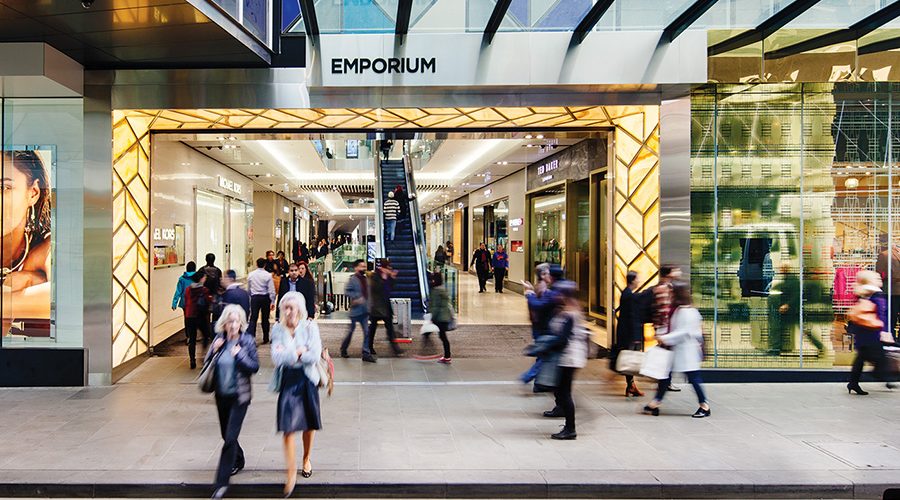
Melbourne retailers and shopping centres are highly affected by extended Victorian lockdowns
ARA CEO Paul Zahra said the positive results were overshadowed by restrictions which had since come into force in Victoria. Victoria recorded a July fall of 2.1% on the previous month, with approximately three weeks of stage three restrictions imposed during the survey period.
“We’ve witnessed the emergence of a two-speed economy, and today’s figures confirm retailers haven’t been sharing the spoils of the stimulus-led rebound. The stay-at-home, nesting trend has continued to boost sales of household goods, even though Australians ventured outside more often in July,” said Zahra.
NRA CEO Dominique Lamb said the final months of 2020 and the first economic quarter of 2021 will reveal just how much the sector will be impacted by the recession.
“The July figures are good, but they need to be put into proper context. The true extent of the economic fallout from this recession is yet to be felt, the next six months are going to be very difficult for all industries,” Lamb said.
“We’re operating in highly volatile times and there’s myriad variables at play. JobKeeper and JobSeeker payments have lifted spending, but these are temporary measures that will end at some point, while some degree of restrictions will remain in place until a vaccine arrives”, she continued.
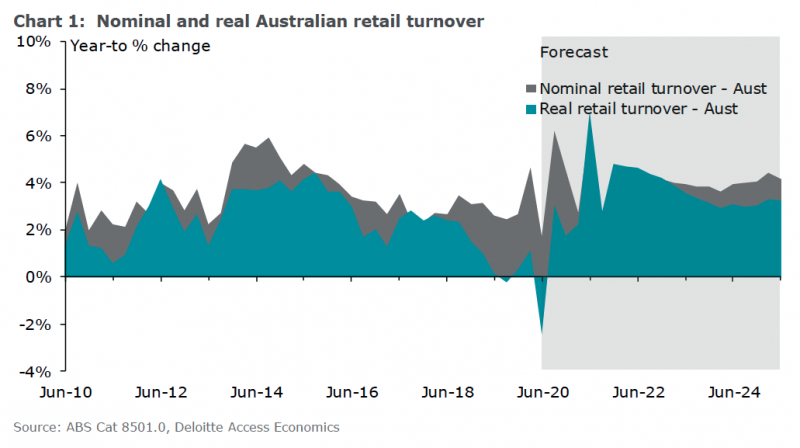
“We still only have around 80% of shopping centre stores trading and the drop in tourism dollars from international and domestic border closures are bound to have an impact. The period ahead remains a very uncertain one and retail remains on guard over how difficult the challenges ahead will be. In the meantime, we urge consumers to support their local retailers, while also complying with social distancing protocols.” Lamb said.
Zahra said retailers expected and accept the need for a staged and safe return to regular activities within Victoria, but the ARA is very disappointed by the target date of 26 October for a return to any regular retail activity, given retail’s exemplary and safe performance.
“Melbourne retailers will have been subject to lockdown for 13 weeks at that point – and some hair and beauty salons have been closed for five months, which is unprecedented,” said Zahra.
“Without further financial support, this will certainly permanently wipe out a large number of small businesses and see the closure of many Victorian stores by national retailers”, he concluded.


